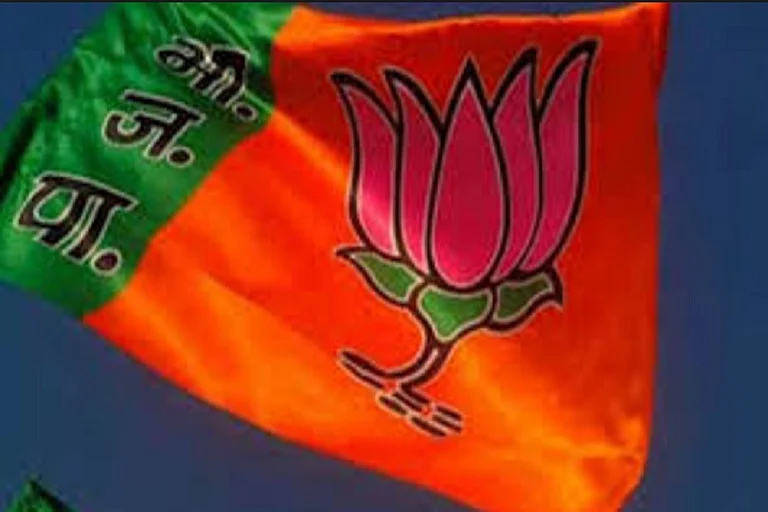An empty cowshed in a small, decrepit house in a remote corner of a non-descript village bears testimony to the story of Manmohan Singh, 55, a semi-literate marginal farmer in Khajuria Naviram village in Bilsanda block, some 50 km from Pilibhit in Uttar Pradesh. That’s where Singh lives with his wife, son and daughter. It was a normal, rather non-descript, life. Last December, a letter from his bank turned this life upside down.
The nationalised Bank of Baroda had sent him a letter stating that Singh’s two accounts in the bank had been frozen. He could neither withdraw nor deposit money to repay his loan.
The reason: Singh is a guarantor to none other than the flamboyant and troubled industrialist and liquor baron Vijay Mallya, who is facing charges for defaulting on Rs 9,000 crore against his now defunct Kingfisher Airlines. How did this happen? Frankly, no one knows.
In the last few months, even as Mallya cools off in London, the SBI-led banks’ consortium and enforcement agencies have been chasing him for default on his loans. The Enforcement Directorate is investigating him in a money-laundering case. All the loans given to his erstwhile airline have come under the scanner, with banks like IDBI prominently being probed.

Ever since Singh was informed of his “special” status, his life has changed totally. Although he has become something of a local celebrity, though for all the wrong reasons, life has become difficult. He cannot withdraw money to run his expenses or deposit money in the bank to repay his loan. “I do not know who Vijay Mallya is, never heard of him before this. I have never gone to Delhi or Mumbai, how can I be a guarantor for him?” he says desperately.
Singh has been banking with the Bank of Baroda branch at Nand near his village, for almost a decade. Every year, he takes crop loans to farm on his land, on which he grows wheat, paddy and sugarcane. Last year too, he had taken a crop loan of Rs 4 lakh and was ready to repay that when he was faced with this rude shock. “Since the account was sealed and we could not put money into the account for repayment of loan, we were burdened with an unnecessary interest of Rs 40,000,” says Singh’s son Harwinder, who helps his father in cultivation. This is the first time they have had to default on their loan, he says.
By all counts, Singh is one of the poorest farmers in Khajuria Naviram village, owning just eight acres of land where the average landholding is 25-30 acres. His annual income from farming is just Rs 96,000 and he depends on the crop loans to carry on cultivation every year. So how did he get connected to the uber-rich Mallya?
People in the banking sector say that the fault lies entirely with the bank, which would have used his name and account number in a rush to find a guarantor to clear Mallya’s loan on a fast track. Says Ganesh Rao, a former chief manager with Bank of Baroda, “According to the rules, any guarantor should have a net worth that is equal or more than the loan amount. How, then, could Manmohan, whose net worth is nowhere near the loan given to Mallya, become a guarantor on the bank’s records? What kind of checks did the bank perform before putting his name there? Obviously, it’s the bank’s fault and some officer must have sourced Singh’s name and account number from the bank’s centralised data centre in Mumbai.” Bank of Baroda has lent a total of Rs 550 crore to Mallya.
This case has an uncanny similarity with the Raj Rajaratnam case of insider trading in the US, where Rajaratnam used to make payments in the name of one Manju Das—a housekeeper hired by Anil Kumar of McKinsey, who was illegally advising him. Das was reportedly listed as an investor in Rajaratnam’s company Galleon with Kumar named as her contact person.
Like everyone else, Singh is surprised that his name figured as Mallya’s guarantor. In fact, the bank never told him about this special status. “When we go for our loans, they ask for ID, Aadhaar card and so many other documents. How is it that the bank didn’t ask for documents from us for becoming a guarantor for such a big loan? How can the name of a small person like me come up as a guarantor for Mallya?” he asks.
He needs money to get his wife’s brain tumour treated, but couldn’t withdraw it from his bank account. Singh has also had to postpone his daughter’s marriage, which he was planning for this year.

Officials of the Nand branch of the Bank of Baroda say their Mumbai headquarters sent them an e-mail with orders to seal Singh’s account. No further information or explanation was given. Singh has since written to the headquarters asking why his name figured in the matter.
Thanks to the dust stirred by the local and vernacular media, the bank last week de-sealed his accounts and allowed him to deposit money. But thanks to the entire episode, Singh has been unable to benefit from government schemes for farmers, including minimum support price (MSP) for his produce. The payments for MSP prices are made directly to bank accounts. Singh was forced to sell his farm produce to private operators in the market at much lower prices, incurring a minimum loss of Rs 200 per quintal.
He has also not been able to take any fresh crop loan and does not know how he will continue farming his land this year. He can’t even avail the subsidy the agriculture and plant protection departments give farmers to help them buy paddy seeds, insecticides and other inputs. Blacklisted by his bank, he cannot open a fresh account in any other bank or apply for a fresh loan there.
Outlook’s attempts to meet the Nand branch manager of the Bank of Baroda, were in vain. The manager, Mange Ram, was travelling, it was said, and he didn’t respond to phone calls on his number.
Manmohan’s case highlights the arbitrary ways in which banks work in India, especially to fast-track loans and approvals for big-ticket clients. According to a former top official of the Bank of Baroda, while award staff comes under the Industrial Disputes Act and officers come under the Officers’ Service Regulations, and both are accountable for their work, the executive directors, MDs and CMDs are government appointees who have power without responsibility or accountability and are rarely prosecuted. And most loans are approved at this level, especially big-ticket loans like Mallya’s.
Singh’s may not be the only case in the Mallya opera. As the Mallya probe proceeds, we would perhaps know that many more like Singh were sacrificed to give the king of good times some special treatment.
By Arindam Mukherjee in Pilibhit






















